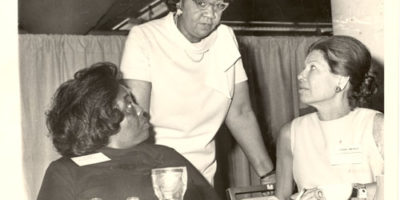From the Editor
Turns out that praising girls for being smart is not the way to raise them to be confident and competent. If you think that your ability to do a task is based on a fixed trait — like your intelligence — rather than on hard work, you’ll accomplish less than if you’d been praised for persistence, according to research by Carol S. Dweck, a professor of psychology at Stanford.
We know enough by now, let’s hope, not to praise little girls for being pretty, or for looking like a princess. But even when we think we’re commenting, in a good way, on brains, not beauty, we risk doing unintended harm.
Dweck invites us to give accolades for “the process they engage in, not how smart they are or how good they are at it.” Instead, give praise for “taking on difficulty, trying many different strategies, sticking to it and achieving over time.”
Take math, for instance. “Of all the subjects on earth, people think math is the most fixed,” Dweck has said. “It’s a gift; you either have it or you don’t.” Girls, more than boys, believe that math abilities are innate and that they don’t possess them, whereas boys simply assume that they do have this gift, and move confidently through any difficulties or confusion. Dweck subtitled her fascinating report on these findings “Beliefs That Put Females at Risk.”
With all the talk about the STEM opportunities that we all want to open up for girls and women, I’ve been remembering what steered me, and so many other females, away from science, technology, engineering and mathematics.
It is somehow unmanly — unmasculine — for boys to be genuinely poor math students. It bespeaks a flaw, a lapse. In fact, I was surprised to see a guy I know admit recently on Facebook that math was his weak suit. In contrast, it has been no sin for a woman to say that she can barely do simple calculations.
I picked up these gendered attitudes from a culture that showed me no role models of women solving quadratic equations. But I also learned them directly from my very own very accomplished mother, adept at many things — including visual and spatial tasks that, if any of us had thought to examine them, would have suggested she had the ability to calculate, compare, and so forth. Yet the consoling mantra she spoke frequently during my school years was, “It’s okay. I was not good at math either, dear.” Truth is, while I found geometry a breeze, and trigonometry a delight (go know), I despised mathematical activities that were more abstract. I didn’t like subjects I couldn’t grasp quickly. I abhorred algebra, and I found the math exercises that involved those conundrum-like upstream-downstream calculations particularly ghastly, the same way that later I was revolted by simple physics problems that involved a piece of lead embedded in a piece of cork. The same ways that pious Jews eschew the mixing of linen and wool, I found these unlikely yokings of materials to be unnatural. Same thing with figuring out the relative speeds of the canoes being paddled in two different directions. Ugh.
And in my family of origin, where Scrabble was the game of choice, it was almost acceptable for me to be a dull math student. It would clearly not have been okay to do poorly in other subjects. So, in junior high and high school, I worked (if at all) at the subjects that liked me, and managed to stifle my fear and loathing for my math courses just long enough to scrape through with passing grades.
Then, I was taken by surprise. In college, in order to take a thrilling, seldom-offered seminar in African drama, I was forced to make a scheduling trade-off. Forfeit the science-for-non-science-majors course and, instead, meet the requirement with a far more rigorous biology–for-pre-med-students course. The thrill of science snuck up on me. Our gifted professors included a woman who taught the emerging discoveries in her field with glee and excitement (and who, pregnant with her third child, brought her students donuts piled high in a baby carriage). Aside from my ineptitude in the lab sessions — I couldn’t even figure out how to adjust my lab stool, never mind my microscope, for which my fellow students forgave me, since I lowered the curve —the expectation was that everyone, male and female alike, would absorb the material, which we did. I didn’t have the feeling that a whole area of learning was off-limits to me because of some gender-linked lack of ability.
In this science course, mysteries were exciting and unknowns were codes to be cracked, not terrors to be avoided. Our professors expected us to succeed, not fail. And also missing was my mother’s gentle and bemused voice, intended to be lovingly, reassuringly feminine, telling me that I was genetically programmed to be bad at math.
Granted, I never did take another math or science class, and the information I happily sopped up in college biology was put to later use largely to enrich my stockpile of available metaphors. But I’ve been thinking a lot lately about the ease with which, when I was a girl, I had been let off the hook for these subjects, in school and at home, because I lacked the “gift” to engage with them. (Anyone who wants to insert here the Jewish piece — extrapolating from math ability to girls’ aspirations to read Torah, say — should feel welcome to do so.) Unless we praise girls for working hard at STEM subjects, or for taking on and performing rituals competently, we’re colluding — inadvertently, but successfully — in driving them away.




